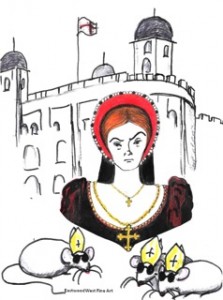Hello, I’m Charlie Rose, and I welcome you to Dartmouth College. Please ignore the fluid on the floor. For the first hour, it probably is just spilt beer.
Tonight we host five presidential candidates, and we are still hoping that someone will let Herman Cain into the hall. Questions will come from the audience and, in accordance with Dartmouth rules, the candidates will also be required to chug a cup of Big Green punch for each question. The last candidate standing wins. Governor Romney, will you have problems with the drinking of alcohol.
Romney: No, Frank Luntz told me that I am Episcopalian tonight.
Rose: Our first question comes from Dartmouth senior Bobo Wadsworth IV.
Bobo: Are you all committed to a pro-life stance or will any of you give me a break about that Colby coed?
Rick Perry: You know that we need white babies. But you seem to be good stock. So she should pay you!
Newt Gingrich: The Liberals invented promiscuity. And does she have a roommate?
Michele Bachmann: My husband can cure you of these wanton desires for women.
Ron Paul: As a libertarian, I think that your child should be born and then abandoned. Let the market decide.
Romney: Your pioneering spirit is what made America great! The drive, the courage, the vision that animated Christopher Columbus and Daniel Boone, you showed on that roadtrip to Colby Junior College.
Rose: Our next question is from sophomore Binky Wadsworth IV.
Binky: What did you name your polo pony?
Perry: We only had a mule, son, but we named him Dixie Jesus.
Gingrich: I never could fit on a horse.
Paul: We let the horse decide. I gave him a choice of two Ayn Rand novels and the works of Friedrich von Hayek. He wouldn’t eat any of them. So we respected his right to anonymity.
Bachmann: My husband chose Wild Oscar. Will someone explain that to me?
Romney: I have had 47 polo ponies, and a focus group picks their names.
Rose: Our next question is from Freshman Buffy Wadsworth IV.
Buffy: This is for a term paper. What was America’s involvement in the Seven Years War?
Romney: Our French and Indian War was an extension of the international conflict between France and England.
Perry: Oooh, aren’t you smart! See, I told ya’ll that he was the same as Obama.
Romney: I mean that is just one opinion but we can’t be sure.
Perry: I don’t like Seven Years Wars but we had to fight Hitler and the Islamic terrorists.
Gingrich: Louis XV was your typical European socialist, but Frederick the Great was our beleaguered democratic ally.
Paul: If we abolished the State Department, we could just ignore foreign countries. Email can do anything an ambassador can.
Rose: Where is Congresswoman Bachmann?
Romney: She went home with the senior stud.
Rose: No one will blame her.
.
